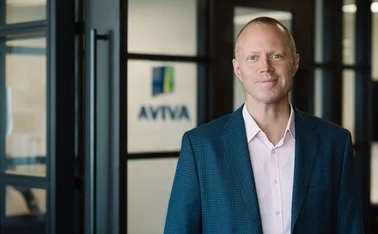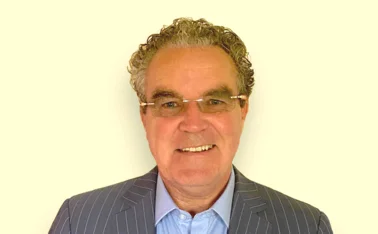
BIS countdown - John Pollock: Managing the media

Legal & General’s John Pollock has a passion to improve the social profile of the insurance industry. He tells Jonathan Swift how it needs to unite to build consumer trust and improve its media standing.
Legal & General Risk group board director John Pollock is unapologetic in his belief that the insurance industry should and could get better press.
Having worked for the insurer for more than 30 years, joining in 1980 as a trainee computer programmer, he says: “I am on a little bit of a mission to see if I can make a difference, and try and do something in my privileged position to stand up and shout about the great job the insurance industry does, and improve its standing as a consequence.”
Like many market commentators, Mr Pollock appears to agree that the recession has, in a sense, become a new ‘year zero’ for the insurance industry, as it has provided an opportunity for the sector to mark itself out from other financial services sectors that have shouldered most of the blame for the economic downturn.
“[Financial Services Authority chairman] Lord Turner gave us a moment of thought when he made the comment that the banks are socially useless,” says Mr Pollock. “Because, as insurers, we stood up well to the economic crisis and did not require state aid. What’s more it reminded us that we are socially useful. Imagine a world with no insurance — a world where if you were flooded you had to deal with it yourself.”
Carlisle lessons
He reflects on a trip to Carlisle following the 2009 floods, where his firm estimated the average cost of restoration for a household policyholder was £60 000. “For those people who had no insurance, getting hold of that sum of money would have been very hard. The floods happened at a time when getting a mortgage was already hard enough, so remortgaging would have been virtually impossible. Ultimately, £60 000 may as well have been £2m — it was just beyond their reach and it reminded us the social purpose of the policies that our customers take out: that we promise to be there when tragedy strikes,” Mr Pollock continues.
“And it dawned on us that we have witnessed our industry slip from the position of trust that we should occupy. Instead we have allowed scandals to rock us and we have not reminded people the absolute value that we as an industry provide.”
Speaking of scandals, one example is that of payment protection insurance mis-selling, which has blighted the insurance sector in the past two years — despite banks being the worst offenders.
“As an insurer we have sold mortgage PPI, but during recent months I have not seen a single story about people who were able to stay in their homes as a consequence of being able to call on that MPPI insurance cover. Yet everyone is focused on whether a PPI premium that had been paid was mis-sold.
“There are good stories out there to counteract the bad ones, we just don’t appear to have as strong a voice as necessary to remind people about the competence, professionalism and purpose of our industry, and we need to address that.”
Another area where insurers have suffered criticism is around jargon and hiding exclusions in the small print of insurance policies. Mr Pollock agrees that there is an onus on insurers to make it easier for policyholders to sift out what they are covered for, but accepts they can only do so much: “With L&G policies there is no small print, just big print. It states you are covered for this, and not covered for this. It is as clear as we can make it.”
He adds: “The real problem is that people have become accustomed to not reading those and it is a very difficult challenge for the industry to change that mindset. And those who read it may forget basic things like there has to be a storm for you to claim storm damage. If it is a little bit windy and something falls off that is likely to be due to poor maintenance.
“If I am going to be critical of the FSA, it would be that one of its main stated objectives was to help educate consumers; and it is the one space where, despite the huge prevalence of personal financial coverage in the consumer press, the vast majority is not really about financial education.”
A social role
Mr Pollock is also keen to stress that insurance has a social role that extends beyond commercial and personal insurance customers, to the government too; stepping in to provide insurance solutions should the ruling party decide to roll back the welfare state,
for instance.
However, he admits there has got to be some check on how far the government goes in relinquishing its duty of care to the private sector, with flooding a prime example of an issue where the industry has arguably been asked to act over and above what it should be doing, given the cuts to flood defences that have been announced by the coalition government.
“It has to be a partnership of government, our industry and the individuals,” he explains. “We have spent a lot of time trying to educate customers that the insured pool relies on honest full disclosure and that fraud costs the industry hundreds of millions of pounds a year, and that has a knock on effect on the pool in terms of the premiums people are paying.
“But the partnership has to exist and we have to stand behind our promises we make to pay valid claims, policyholders need to be honest with us and the governments need to create an environment where there can be a successful outcome. So not delivering on their promises in terms of flood defences is inappropriate behaviour.”
He continues: “However, it must be remembered that we have had some very good conversations with government in areas such as rehabilitation in the workplace and helping the long-term sick get back to work, which is a win-win situation for the individual, their employer, the insurer and the state, and shows all parties working in unison for the common good.”
A united ABI
Mr Pollock admits this may sound “a bit pukey”, but it comes back to his determination to help the industry improve its image. However, it is almost certain that if he is to fulfil his ambition, he will need some help. The Association of British Insurers could certainly have a role to play here, however, he admits its efforts are complicated by the large and wide variety of members that make up its church.
“Historically the ABI has not done as well as the British Bankers’ Association, for example, so everybody has heard of [BBA CEO] Angela Knight and the way she stands up and defends the banks,” he concludes. “Insurance is a very broad word full of different businesses and the ABI has been dealing with a fragmented industry, where the voices of some have been drowned out by others, and agreement could not be reached because of the wide variety of business models.
“It has been more challenging for the insurance industry to speak with one single voice, but we should find a way to overcome it and [its chair] Tim [Breedon] and [CEO] Otto [Thoresen] have recognised that we need to be better, and rehabilitate and rebuild the trust we think we deserve.”
John Pollock will be speaking at the British Insurance Summit 2011.
Only users who have a paid subscription or are part of a corporate subscription are able to print or copy content.
To access these options, along with all other subscription benefits, please contact info@postonline.co.uk or view our subscription options here: http://subscriptions.postonline.co.uk/subscribe
You are currently unable to print this content. Please contact info@postonline.co.uk to find out more.
You are currently unable to copy this content. Please contact info@postonline.co.uk to find out more.
Copyright Infopro Digital Limited. All rights reserved.
You may share this content using our article tools. Printing this content is for the sole use of the Authorised User (named subscriber), as outlined in our terms and conditions - https://www.infopro-insight.com/terms-conditions/insight-subscriptions/
If you would like to purchase additional rights please email info@postonline.co.uk
Copyright Infopro Digital Limited. All rights reserved.
You may share this content using our article tools. Copying this content is for the sole use of the Authorised User (named subscriber), as outlined in our terms and conditions - https://www.infopro-insight.com/terms-conditions/insight-subscriptions/
If you would like to purchase additional rights please email info@postonline.co.uk
Most read
- RSA still unsure on combined NIG business brand
- Esure offers customers six-months free cover for latest tech glitch
- Motor premiums fall for first time in over two years








